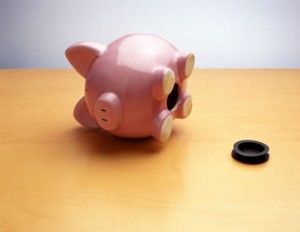How long could you last?
What have you done to protect your personal economy from meltdown?
Advertisement
What have you done to protect your personal economy from meltdown?

Economies from around the globe are reeling from negative news. The U.S. May unemployment numbers were disappointing for the second consecutive month. Europe is still in turmoil and economists say there has been “a deceleration of economic activity,” which translates into “the crap is hitting the fan.”
So, how long could you last if you found yourself having to cope with less income or an increase in interest rates? What have you done to protect your personal economy from the vagaries of the world economic meltdown?
Once upon a time, the standard answer to the no-money dilemma was to use home equity to pay down debt or secure a line of credit in order to weather a storm. But there’s evidence home prices, even here in Canada, are slowing down. Vancouver saw a drop of 11% in one month earlier this year, and many Calgarians are sitting with more mortgage than house.
If you haven’t figured out the formula for a sound financial foundation yet, let me be very clear: spend less than you make. While it’s popular to say that consumption drives our economy, it also drives our ever-increasing debt. The trick is to smooth out the hills and valleys of our consumption and earnings. Yes, there are times when we need to spend more. And there are times when we earn more. But if every time we have extra money we find a way to spend it all, that leaves nothing for the troughs in our financial lives. And that means turning to credit. Some of us never recover.
If you’re still buying the argument that a line of credit is a great emergency fund, it’s time to wake up and smell the coffee. LOCs are nothing more than debt traps. Do you really want to be unemployed and $20,000 deeper in debt a year from now?
Without the “security” of a line of credit and in anticipation of the wolf at the door, you bet your booty it’s time to make sure you have a real emergency fund in place. If you haven’t already started building an emergency fund, ask yourself how long you could hold on if your income suddenly evaporated. Still think a line of credit will do just fine? How deeply in debt are you prepared to go? And how much of your future income are you prepared to shell out in order to pay for having not been prepared financially?
Setting aside some of what you’re earning now for the eventual change in personal circumstances with which we’re all faced— unemployment, illness, death, divorce—is a no-brainer. If you’re not doing it, you can’t whine about how awful your life is when the inevitable “bad luck” comes your way.
Share this article Share on Facebook Share on Twitter Share on Linkedin Share on Reddit Share on Email